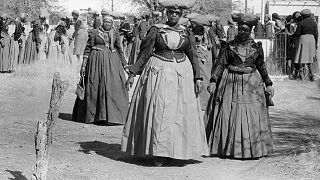Namibia
An extreme solution to address the increasingly alarming climate situation. To mitigate the record drought of this season, Namibia has began culling of 700 wild animals in national parks.
While this decision has shocked part of the public, the government considers it a key measure in its plan to combat the risk of food insecurity. The culling of hundreds of wild animals is expected to provide meat to the most vulnerable populations.
The government has also offered another explanation: reducing the number of animals should allow national parks to have more water reserves during these difficult times.
This operation, led by professional hunters, targets animals such as hippos, buffaloes, and elephants, among others.
Despite the government's justifications, the decision has not been accepted especially by the conservatists. Animal protection organizations have launched petitions to have the operation canceled.
Last May, Namibia declared a state of emergency due to the drought affecting all of southern Africa. According to the World Food Programme, about 1.4 million Namibians, nearly half of the population, are currently facing acute food insecurity.













01:00
Animal shelters in the US use live music to soothe anxious pets
01:15
Morocco says 2024 was the hottest year with temperatures reaching 47.7 degrees
02:01
Raptor rehab: Moroccan facility rescues birds of prey and prepares them to return to the wild
Go to video
South African town wakes up to elephant seal hobbling down its streets
Go to video
"Trap, Neuter, Vaccinate, and Return", Morocco’s strategy to save stray dogs
01:18
Gaza Crisis: Water shortages worsen